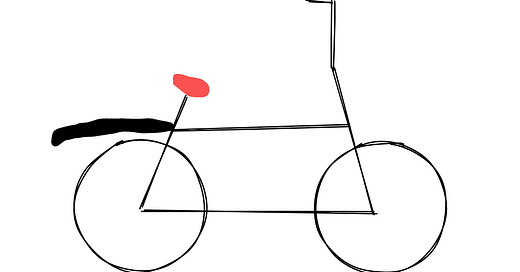5 years ago, at the peak of U.S. college application, I “invented” a reward system that got me through “the most stressful” period for many high school students.
The system was simple: I would have a to-do list of things I need to get done by the end of the day, and every day that I got more than half done, I would reward myself with 2 episodes of F.R.I.E.N.D.S.
A habit was built: I would be grinding all day, with a goal to watch those 2 episodes of F.R.I.E.N.D.S every night before going to bed. Not only was that period not stressful, it was one of the happiest and most productive times of my life.
Watching F.R.I.E.N.D.S as an external reward powerfully motivates me to get shit done. Waiting for an “intrinsic motivation” to write personal statements and fill in financial paperwork does not sound like a great strategy.
According to their definitions, watching FRIENDS is an intrinsically motivated behavior, while writing personal statements for the reward of watching FRIENDS is an extrinsically motivated behavior.
Who, in their right mind, would say watching TV is better than working on one’s education future?
My argument is that how you are motivated is not as important as what you are motivated to do.
Imagine that you’re trying to get from A to B, and your vehicle is the motivation bicycle. There’s a front tire, representing extrinsic motivation, and a back tire, representing intrinsic motivation.
The current discourse often tells us that the front tire is evil and the back tire is good. We talked about tires so much that we forget the most important goal is to get to B.
When it comes to getting from A to B with your bicycle, extrinsic motivation alone is not sustainable. But neither is intrinsic motivation. Riding on one tire, no matter which one, is a risky and unsustainable game.
Instead of rejecting and avoiding external rewards, use them to your advantage. Only when we accept that extrinsic motivation is “natural”, can we have the ability to design it to our favor.
Use both tires.







Awesome. It should be noted that while extrinsic rewards like watching friends is good for short-term, discipline-intensive, and task-based work, they have negative effects on project-based and long term work, hence reducing intrinsic motivation.
oops i like the way you use the bicycle for illustration 😆 and the message is absolutely helpful tysm ✨✨